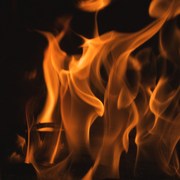 Andy Dean/PhotoSpin
Andy Dean/PhotoSpin
Hot flashes are the most frequent symptoms of menopause and perimenopause. They occur in more than two-thirds of North American women during perimenopause.
A hot flash – sometimes called a hot flush – is a sensation of heat that may be accompanied by a red, flushed face as well as sweating.
Hot flashes occur when blood vessels near the skin's surface dilate to cool down. This produces the red, flushed look.
Women may also perspire to cool down and some experience rapid heart rate or chills.
Doctors theorize one reason hot flashes happen is a result of changing estrogen levels.
As estrogen and progesterone levels drop during menopause, the body produces more of a brain hormone called gonadotropin hormone (GnRH) which forces fertility.
GnRH also regulates the brain’s heat sensors. When higher levels of GnRH are present, the body mistakenly thinks it’s overheating.
Diminished estrogen levels directly affect the hypothalamus, the part of the brain responsible for controlling appetite, sleep cycles, sex hormones and body temperature.
Somehow, the drop in estrogen confuses the hypothalamus — which is sometimes referred to as the body's "thermostat" — and makes it read "too hot." Some women's skin temperature can rise six degrees Centigrade during a hot flash.
BreastCancer.org said that the brain responds to this reading by broadcasting an all-out alert to the heart, blood vessels and nervous system.
The message is transmitted by the nervous system's chemical messenger and instantly delivered. The heart pumps faster, blood vessels in the skin dilate to circulate more blood to release the heat, and sweat glands release sweat to cool off.
This heat-releasing process is how bodies keep cool in the summer, but when the process is triggered by a drop in estrogen, it confuses the brain's response.
The Mayo Clinic said that low estrogen alone doesn't often seem to induce hot flashes, as children and women with low levels of estrogen due to medical conditions usually don't experience hot flashes.
Instead, estrogen withdrawal, which occurs during menopause, appears to be the trigger.
Not all menopausal women experience hot flashes. Although it's not clear why some women get hot flashes and others don't, some triggers increase the risk of hot flashes. These include smoking, obesity, physical inactivity and ethnicity.
Doctors have other theories about the cause of hot flashes. WebMD reported that doctors hypothesize some women have very sensitive skin cells, which makes them more prone to vasodilation and hot flashes.
Researchers also theorize that differences in levels of the hormone leptin, which is produced by fat cells, and a blood sugar drop may play a role in hot flashes.
Sources:
"Menopause and Hot Flashes." Cleveland Clinic. N.p., n.d. Web. 22 Jan. 2013.
http://my.clevelandclinic.org/disorders/menopause/hic_menopause_and_hot_flashes.aspx
"All About Hot Flashes." Breastcancer.org - Breast Cancer Information and Awareness. N.p., n.d. Web. 22 Jan. 2013.
http://www.breastcancer.org/tips/menopausal/facing/hot_flashes
Gass, Margery. "What causes hot flashes?" North American Menopause Society (NAMS) - Focused on Providing Physicians, Practitioners & Women Menopause Information, Help & Treatment Insights. N.p., n.d. Web. 22 Jan. 2013.
http://www.menopause.org/for-women/menopause-take-time-to-think-about-it/consumers/2013/01/10/what-causes-hot-flashes
"Hormones and Menopause | National Institute on Aging." National Institute on Aging | The Leader in Aging Research. N.p., n.d. Web. 22 Jan. 2013.
http://www.nia.nih.gov/health/publication/hormones-and-menopause
"Hot flashes - MayoClinic.com." Mayo Clinic. N.p., n.d. Web. 22 Jan. 2013.
http://www.mayoclinic.com/health/hot-flashes/DS01143
"Menopause Hot Flashes Symptoms, Causes, and Treatments." WebMD - Better information. Better health. N.p., n.d. Web. 22 Jan. 2013.
http://www.webmd.com/menopause/guide/hot-flashes
Suszynski, Marie. "Hot Flashes, Menopause, and Sweating." WebMD - Better information. Better health. N.p., n.d. Web. 22 Jan. 2013.
http://www.webmd.com/skin-problems-and-treatments/features/menopause-sweating-11?ecd=wnl_mno_011413&ctr=wnl-mno-011413_promo_1&mb
"Symptoms of Menopause: Hot Flashes." Epigee Pregnancy Resource. N.p., n.d. Web. 22 Jan. 2013.
http://www.epigee.org/menopause/hot_flashes.html
Reviewed January 24, 2013
by Michele Blacksberg RN
Edited by Jody Smith





Add a CommentComments
There are no comments yet. Be the first one and get the conversation started!